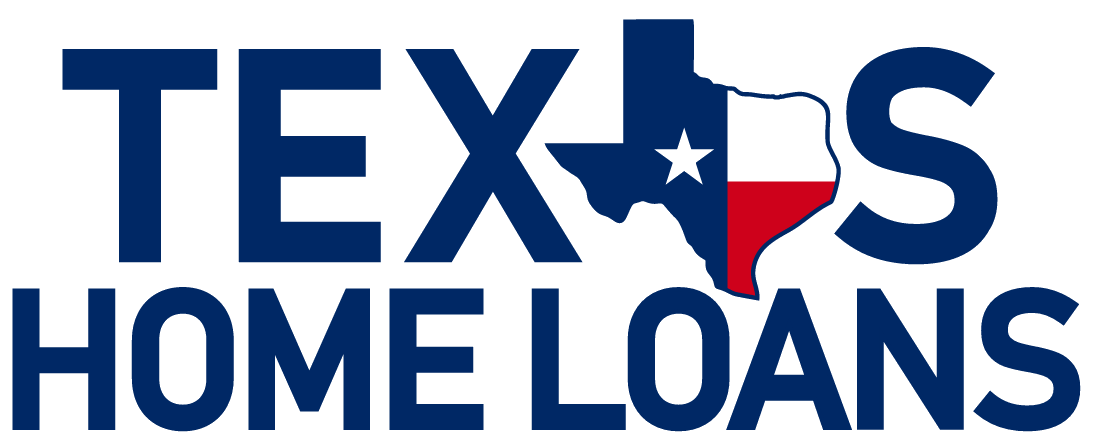Why Spring is a Prime Time for Real Estate Spring consistently ranks as one of…
5 Texas Home Loan Myths Debunked
Getting a mortgage loan is usually a requirement when financing a home purchase in Texas. However, don’t let common misconceptions hold you back from your dream of homeownership. This blog post will address and debunk five common myths regarding home loans in Texas. We’ll also explore the process of securing a loan and provide valuable tips for first-time home buyers.
5 Common Texas Home Loan Myths Debunked
Several misconceptions surrounding mortgages in Texas often prevent qualified buyers from purchasing a home. These myths can leave you feeling overwhelmed and discouraged. In this post, we’ll debunk five of the most common Texas mortgage myths so you have the information to move forward confidently. Understanding the truth behind these myths can simplify the home-buying process.
Myth 1: You Need a Perfect Credit Score to Qualify
A common misconception is that you need perfect credit to qualify for a mortgage. Fortunately, this isn’t true! While a higher credit score typically leads to more favorable loan terms, a perfect credit score isn’t necessary.
Many mortgage lenders offer programs for borrowers with less-than-perfect credit. For instance, government-backed loans, such as FHA loans and VA loans, are designed to help borrowers with lower credit scores qualify for a mortgage.
Improving your credit score is a good idea before applying for a mortgage, but don’t let this stop you from pursuing homeownership. Speaking to a mortgage lender can help you understand your options, even if your credit score isn’t perfect.
Myth 2: VA Loans Are Only for First-Time Buyers
Another misconception is that VA loans are only for first-time homebuyers. However, the Department of Veterans Affairs offers VA loans to eligible veterans, active-duty military personnel, and surviving spouses.
A common myth is that a VA loan is a one-time benefit. However, you can use this benefit multiple times, making it a valuable resource for repeat buyers as well. The program aims to help eligible military personnel and their families attain homeownership, regardless of whether they’ve purchased a home before.
If you’re eligible for a VA loan, take advantage of it! It offers significant benefits, such as no down payment options and competitive interest rates. Speaking with a texas mortgage expert can provide more information on eligibility requirements and the benefits of a VA loan.
Myth 3: Prequalification Equals Loan Commitment
Mortgage prequalification and preapproval are often used interchangeably but have distinct differences. A prequalification provides a quick estimate of the loan amount you might qualify for based on your self-reported financial information. It’s a preliminary assessment and doesn’t require a credit check or income verification.
A prequalification can be beneficial in the initial stages.
Myth 4: Lower Interest Rates Guarantee the Best Deals
When evaluating mortgage options, fixating solely on a lower interest rate can be misleading. While a lower interest rate typically reduces your monthly mortgage payment, it doesn’t necessarily mean you’re getting the best deal overall.
Other factors can significantly influence the cost of your loan, including closing costs, loan terms, and mortgage insurance premiums. For instance, a lender offering a lower interest rate might compensate with higher closing costs, impacting your upfront expenses.
Comparing loan options carefully, including interest rates, fees, and loan terms, is essential to determine the best fit for your financial situation. Consider factors such as your down payment amount, desired loan term, and how long you plan to stay in the home.
Myth 5: Only people with high incomes can get a mortgage in Texas.
Another myth surrounding mortgages in Texas is that only those with high incomes qualify. Fortunately, many mortgage loan options are available, and lenders consider various factors beyond just your salary.
While your income is a significant factor in determining your borrowing capacity, lenders also consider factors like your credit score, debt-to-income ratio, and employment history. It’s about demonstrating you have a stable financial position and the means to make your monthly mortgage payments responsibly.
If you’re concerned about qualifying for a mortgage with your current income, speak with a reputable lender in Texas. They can assess your individual circumstances, explore potential loan options, and help you understand the requirements for obtaining a mortgage.
The True Benefits of a VA Loan in Texas
VA loans, backed by the Department of Veterans Affairs, offer substantial benefits for eligible veterans, active-duty personnel, and surviving spouses. The program aims to make homeownership attainable for those who served our country.
These benefits include competitive interest rates, flexible credit requirements, and no down payment options for qualifying borrowers. It’s essential to understand these benefits fully before deciding on a mortgage.
Flexible credit score requirements
While conventional loans typically require higher credit scores, VA loans are more lenient toward borrowers with less-than-perfect credit. You may still be eligible for a VA loan even if you have a lower credit score, making it an attractive option for those who may not qualify for other loan programs.
The VA doesn’t set a minimum score requirement. However, individual lenders may have their own credit score guidelines, usually starting around 620. The VA assesses your overall financial profile rather than just focusing on your credit score.
It’s a good idea to check with different lenders to understand their specific requirements for VA loans and find the best fit for your situation.
No down payment requirement for eligible borrowers
One of the most significant benefits of a VA loan is that there is no down payment required for eligible borrowers. This feature makes homeownership attainable for those who may struggle to save a large sum of money upfront.
With a traditional loan, accumulating a down payment can take years. The VA loan program removes that barrier, allowing qualified veterans, active-duty military personnel, and surviving spouses to purchase a home with little upfront costs.
However, it’s essential to remember closing costs and other fees will still apply. Speak with a Texas VA loan expert to understand what to expect regarding these costs.
Lower interest rates and fees compared to conventional loans
With VA loans, borrowers can benefit from lower interest rates and reduced fees compared to conventional loans. The Department of Veterans Affairs offers this advantage to support veterans and service members in homeownership. By understanding the nuances of VA loans, applicants can capitalize on the financial benefits they provide. VA loans often have lower interest rates and may not require a down payment or private mortgage insurance, making them an attractive option for eligible individuals. By exploring VA loan eligibility and requirements, potential homebuyers in Texas can leverage these favorable terms to secure an affordable mortgage. Utilizing VA loans can lead to significant cost savings over the life of the loan.
Tips for First-Time Home Buyers in Texas
Purchasing a new home is a significant milestone, especially for first-time buyers. Navigating the process can seem overwhelming. With proper planning, preparation, and guidance, you can achieve your dream of homeownership.
These practical tips will help you confidently navigate the process. Remember, being informed is powerful when making such a substantial investment.
Understand the Home Loan Process
Before diving into your home search, take time to understand the mortgage process. It will help you manage expectations and prepare for each step. Research different types of loans, such as conventional, FHA, and VA, to see which best suits your financial situation.
Once you’ve chosen a lender, you’ll submit a loan application and provide documentation to verify your income, employment, and assets. The lender will evaluate your financial profile to determine the loan amount and terms for which you qualify.
Familiarizing yourself with common mortgage terminology, like interest rates, closing costs, and loan terms, is also important. Understanding these concepts will empower you to make informed decisions.
Improve Your Credit Score
Your credit score plays a vital role in the mortgage process. It’s one of the primary factors lenders use to assess your creditworthiness. Before applying for a mortgage, obtain a copy of your credit report and review it for errors or discrepancies that could negatively impact your score.
If you find errors, contact the credit reporting bureaus to dispute them. Paying down outstanding debts and maintaining on-time payments on your credit accounts will gradually improve your score over time.
Aim for a credit score of at least 620 or higher to increase your chances of qualifying for a mortgage and favorable interest rates.
Know Your Options
Various mortgage loan options are available, each with its own terms and requirements. Spend time researching different types of loans to determine which is the best fit for your financial circumstances. Common loan options include:
- Conventional loans: These loans are not backed by government agencies and often require a higher credit score and larger down payment.
- FHA loans: These loans are insured by the Federal Housing Administration and have more lenient credit requirements, making them popular among first-time buyers.
- VA loans: These loans are available to eligible veterans, active-duty military personnel, and surviving spouses, offering unique benefits such as no down payment options.
- USDA loans: Backed by the United States Department of Agriculture, these loans are designed for properties in rural areas, offering 100% financing to eligible borrowers.
Consider factors such as down payment assistance programs, closing cost assistance, and interest-rate reductions when choosing a mortgage lender.
Explore First-Time Home Buyer Programs in Texas
Texas offers various programs to assist first-time buyers in achieving their dream of homeownership. These programs, designed to provide financial assistance, can make a significant difference.
The Texas Department of Housing and Community Affairs (TDHCA) offers several first-time home buyer programs that provide down payment assistance and mortgage credit certificates. These programs can reduce your out-of-pocket expenses and lower your monthly mortgage payments.
Contact the TDHCA or consult a housing counselor to learn more about eligibility requirements and explore the available programs.
Common Misconceptions Surrounding the Mortgage Process
Several misconceptions can create confusion and lead to costly errors. By debunking these myths and having the correct information on hand, you can approach your home buying journey with greater clarity and confidence.
Remember, being well-informed is key to a smooth and successful home buying experience. Let’s separate fact from fiction and clear up some of these misconceptions.
Getting prequalified for a mortgage is not necessary
While it’s true that getting prequalified is not mandatory to start looking at homes, doing so can save time and frustration later on. When you get a mortgage preapproval, your lender verifies your credit history, employment, income, and assets to determine how much they’re willing to lend you.
If you’re struggling to find a home in a competitive market, a preaqualification can provide a considerable advantage over other buyers.
You have to put down 20% for a down payment
It’s a common misconception that you need a 20% down payment to buy a house. While a 20% down payment has advantages, such as avoiding private mortgage insurance (PMI), it is not always required. Several loan options are available for buyers who can only put down a small percentage of the home’s purchase price.
FHA loans are designed for low-to-moderate income borrowers, typically requiring a 3.5% down payment. However, FHA loans require mortgage insurance premiums (MIP) for the life of the loan.
VA and USDA loans do not require a down payment for eligible borrowers. When deciding on a down payment amount, it’s essential to weigh the pros and cons of each loan option.
Frequently Asked Questions
What are some common misconceptions about home loans in Texas?
Common myths about home loans in Texas include needing a perfect credit score, a 20% down payment, or a high income. These misconceptions can deter potential homebuyers, but speaking with a trusted mortgage lender can clear up these inaccuracies.
Are there any specific requirements for obtaining a home loan in Texas?
Qualifying for a mortgage loan in Texas involves meeting the lender’s requirements, which include acceptable credit scores, income verification, and a debt-to-income ratio within their limits. The lender will also consider the property taxes on the home you’re seeking to buy.
Can first-time homebuyers qualify for special programs or incentives in Texas?
Yes, several programs are available to first-time homebuyers in Texas, such as VA loans, FHA loans, and USDA loans, that can reduce the interest rate or the down payment required to purchase a property.
Conclusion
Debunking the top 5 Texas home loan myths sheds light on the realities of the mortgage process. Understanding the benefits of VA loans, dispelling credit score misconceptions, and exploring first-time buyer tips are crucial steps. Educating yourself on the home loan process, credit score improvement, and available programs in Texas can make your home buying journey smoother. By breaking free from these myths, you open doors to more opportunities and empower yourself to make informed decisions. Let go of misconceptions, embrace knowledge, and take confident strides towards your dream home in Texas.





